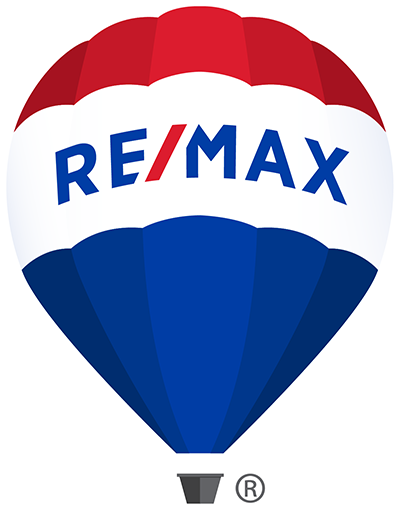I am now licensed and ready to help you buy in Rhode Island. The state has great values and opportunities for 1st home/2nd home/investment property, still close to Massachusetts amenities.
Real Estate News & Views
Real Estate News & Views
Here's a quick summary of the year-over-year sales of SF houses in Sharon, comparing 2019 to 2020.
2020: Houses sold (through MLS) = 444 2019: 402
Average Sales Price: $627,541 $594,894
Average #days-to-offer: 35 38
Real Estate News & Views
The Real Estate market seemed to take a breather over the holidays, but right back at it now. Quite a boom time for home sellers, but quite a challenging time for home buyers. Low (or no) Inventory + Historically Low Mortgage Rates + Lots of ready Buyers = Over-heating RE Market. Now more than ever before is the time to work with a Realtor with expertise and experience to help navigate through the obstacles and nuances of the real estate process.
End of 2020 planning
As we near the end of a long and challenging 2020, we all hope for a better 2021. One of the last reminders of the long year we have gone through will be the town real estate tax bills due to arrive shortly. You will note the current assessment for your property for FY 2021. If you think it is incorrect, or too high, you have the opportunity to question the assessed value through the abatement application process. Contact the assessors office to request an application, which must be submitted within 30 days of your tax bill. Assessments typically increase to reflect the past years of market value appreciation, and remember that assessed values for FY 2021 are based on actual real estate sales records from calender year 2019.
Smoke Detectors save lives!
I visit so many homes in which there are inactive or non-existent smoke detectors. Fire department officials have told me that many lives could have been saved if only the house was properly fitted with functional smoke detectors and carbon monoxide detectors.
Your house should have 1 smoke detector/carbon monoxide detector on each level of living space, including your basement. There should be 1 detector for every 1200 sqft of living space. The current regulations call for detectors to be less than 10 years old and sealed units so that the battery cannot be removed. Did you ever remove a battery from a detector because it was setting off from cooking? Bad idea!
It is also a great idea to test your smoke detectors at least twice every year. A good reminder is to self-test the detectors when you change the clocks in the spring and fall season.
We experienced a quiet month of March in the real estate market, due to the unkowns and uncertainties brought on by the CoronaVirus. During this initial period, many prospective buyers (and sellers) moved to the sidelines to understand the potential effects. As the stock market skid took place, and the economy slowed, the month of March seemed to be the beginning of a real estate downturn.
But, that was short-lived, as the next 2 months of April and May has turned into a typical spring market mini-boom. New inventory is in short supply, mortgage rates are historically low, and with buyers more confidently re-entering the market, many houses are flying off the shelf!
This is indicative of buyer confidence in their employment and economic future, and also reminds us that we can't predict the future. How do you know when is the right time to make a move? Should you wait for the market to improve? The best time to make a move is.....NOW, taking advantage of the current information on market conditions.
The market is very active as there are numerous buyers looking to buy their 1st home or move into a larger home. Many are trying to lock in a lower mortgage interest rate before those rates rise any higher. Due to historic low inventory of available property, many buyers find themselves competing with each other, thereby increasing pressure on appreciating values.
When is the best time to buy or sell? Now, while mortage rates remain affordable and reasonable!
How has the Sharon real estate market performed over the past year? Contact me to learn about any other community.
The Town of Sharon has seen another year of appreciating home values, although less dramatic than the prior year. The number of real estate transactions has decreased significantly from calendar year 2013. Based on MLS data for single-family houses, here is a year-to-year comparison of houses sold in Sharon:
2013:
Houses sold: 247
Average days-on-market: 76
Average sales price: $521,750
Average selling price/list price ratio: 98%
2014:
Houses sold: 188
Average days-on-market: 62
Average sales price: $532,817
Average selling price/list price ratio: 98.7%
This chart indicates a stabilization of average selling price as well as a significant decrease in marketing time.
The following market data will give you a look at specific price ranges and market performance for houses sold in 2014:
Under $300k: 10 houses sold
$300-400k 44 houses sold
$400-500k 39 houses sold
$500-600k 33 houses sold
$600-700k 32 houses sold
$700-800k 19 houses sold
$800-900k 6 houses sold
$900-1 mil 2 houses sold
Over $1mil 3houses sold
Almost every price range shows a decrease in # of houses sold in 2014 as compared to calendar year 2013.
So, what’s happening so far in 2015? The supply of houses available for sale in Sharon is very limited, as of 2/24/2015 there are only 26 houses listed for sale through MLS database.
House inventory:
Under $300k 1
$300-400k 3
$400-500k 3
$500-600k 3
$600-700k 2
$700-800k 3
$800-900k 5
$900- 1 mil 4
Over $1 mil 2
This in part due to the harsh weather and historic snowfall and should result in more listings as we approach the spring weather and spring real estate market. The drop in mortgage interest rates has kept prospective buyers active in their search throughout the winter.
Is your property assessment accurate and correct?
Q. How can I find out if my property assessment is accurate ?
A. Property values are established by the assessors office based on Mass Appraisal methods. This process analyzes properties grouped by similar market influences and characteristics rather than by performing individual appraisals on each property. Due to the large number of properties within a community, it is not financially or logistically possible to have individual appraisals for each property.
Property values are updated through the use of statistics based on annual market data, although current market assessed values are based on sales of properties within the community from the prior calendar year. For example, your current assessment would be based on property sales for calendar year 2013. This results in a lag in data and may not reflect market trends for the current fiscal year.
Your property assessed value is based on features and amenities which are kept on a property record data card in the assessors office. This card will list the features such as style of house, condition, living area, basement finish, grade, and other features based on a property inspection, or building permits, or from historical data. You should check the accuracy of this data by requesting a copy of your property record from your assessors office to make sure that the data is accurate, as this record serves as the basis for your assessment.
Town of Sharon real estate tax update
Sharon residents will be receiving their tax bills for FY2015 within a few weeks. I thought it would be helpful to learn what to expect and some of the reasons for changes in assessments and taxes. I met with Mark Mazur, the Administrative Assessor for Sharon, to answer some of these questions.
Q. How have assessments changed from last year?
A. In recognition of changes in the residential real estate market single family assessments were increased approximately 9.2% for FY2015.
Q. What is the basis for the change in assessments?
A. We analyzed sales from calendar year 2013 and found that sales prices have gone up significantly when compared to those of the previous calendar year. There were 233 arms length single family sales in calendar 2013.
Q. What is the new tax rate for FY2015 and how does it compare to last year?
A. The fiscal 2015 tax rate is $20.30 compared to last year’s rate of $20.55. That is an decrease of $0.25.
Q. Why would the tax rate decrease?
A. The tax rate is calculated by dividing the town’s tax levy (the amount the town votes at Town Meeting to spend for the year) by the total taxable assessed value. This year the tax rate decreased because the tax levy increased by less than the assessments increased..
Q. What is the average single family assessment this year and how does it compare to last year?
A. The average single family assessment is now $473,760 as compared to $433,791 from last year. That is an increase of about 9.2%. Remember that this is an average, some properties went up and some went down and by different percentages too.
Q. What is the average single family tax bill for FY2015 and how has it changed from last year?
A. The average single family tax bill for FY2015 is $9,617.33 compared to last year’s average of $8,914.41. That represents a increase of about 7.9%. Again, remember that this is an average with some properties having more or less of an increase and in some rare cases even a decrease.
Q. What will be the total revenues collected for the Town for FY2015 and how does that compare to FY2014?
A. The town sent out tax bills totaling $60,056,129.00 in local property taxes for FY2015. For FY2014 the town sent out tax bills which totaled $56,048,096.71. So, the total tax levy went up this year by $4,008,032.29 or approximately 7.2%.
Q. How and when are abatement and exemption applications filed?
A. Abatements are filed when someone disagrees with the assessed value of their property. Note that for this fiscal year the assessments are our estimates of property value as of 1/1/2014 and are based upon calendar year 2013 sales. Abatements need to be in the Assessor’s Office by 5:00 P. M., on Monday, February 2nd, which is the same day and time that the tax bills are due to be paid. Exemptions are filed by a variety of individual who fit certain guidelines such as disabled veterans, blind people, widows or widowers. Exemption application forms and guidelines as well as abatement application forms are available on line at the Town website, www.townofsharon.net or in the Assessor’s Office. For this fiscal year applications for exemption must be received in the Assessor’s Office by April 1, 2015.
The Assessors Office and Board of Assessors is always available to answer your questions. You can review your property information by logging on to www.townofsharon.org and click on online assessment info. Questions and Concerns can be delivered on-line or at the assessors office.





